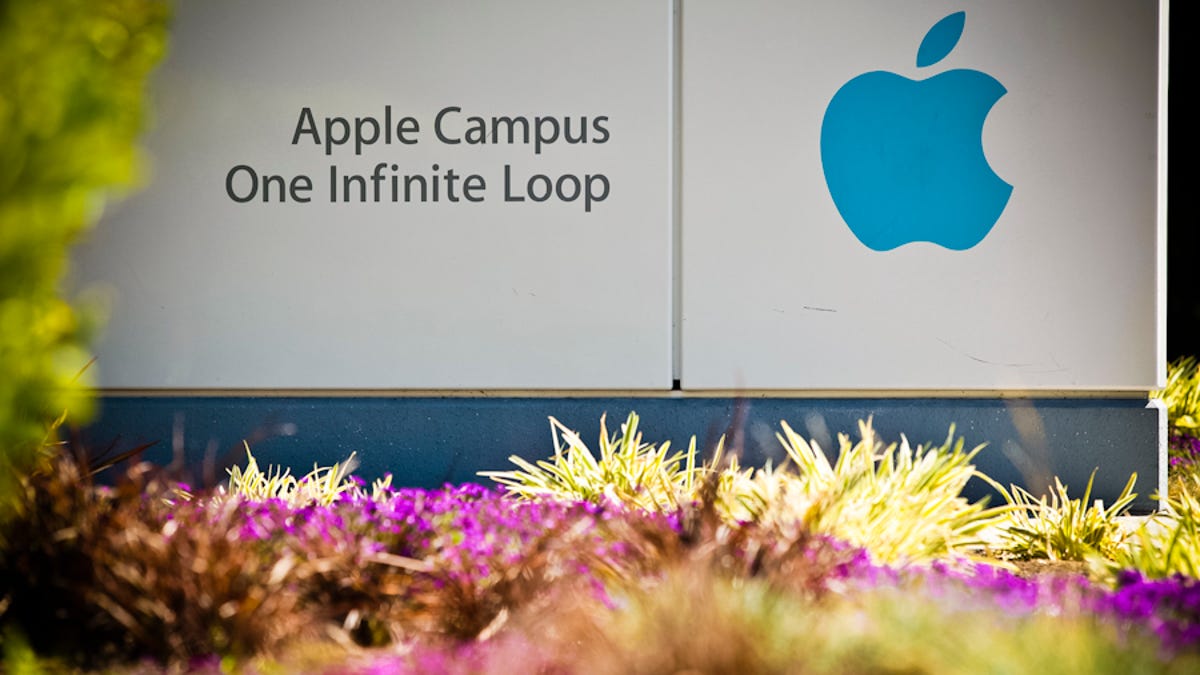Apple's secrecy: It's baked into the walls
A new excerpt from the book "Inside Apple" notes that the company will often suddenly erect new walls, frost windows and install new security in office spaces--to the consternation of people working there.

Apple is a place so secret that employees even have trouble hanging out with one another after hours.
That's one of the key takeaways from a newly-published excerpt of "Inside Apple: How America's Most Admired--and Secretive--Company Really Works," the upcoming book from Fortune's Adam Lashinsky.
The lengthy read, which you can find here, provides a broad overview of what it's like to work for the company, including minute details about Apple's on-boarding process for new employees. However the most interesting tidbits revolve around the extent of Apple's secrecy with both its personnel and physical design.
Lashinsky notes that teams are kept apart from one another, and that as a result, meetings can often be a long process of gently fencing to find out who knows what without coming out and saying anything outright:
To discuss a topic at a meeting, one must be sure everyone in the room is 'disclosed' on the topic, meaning they have been made privy to certain secrets. 'You can't talk about any secret until you're sure everyone is disclosed on it,' said an ex-employee. As a result, Apple employees and their projects are pieces of a puzzle. The snapshot of the completed puzzle is known only at the highest reaches of the organization.
That effort's made easier by physical barriers that keep people apart, Lashinsky writes. Buildings will be physically changed to suit a new project, with nearby employees being kept in the dark:
Apple employees know something big is afoot when the carpenters appear in their office building. New walls are quickly erected. Doors are added and new security protocols put into place. Windows that once were transparent are now frosted. Other rooms have no windows at all. They are called lockdown rooms: No information goes in or out without a reason.
The hubbub is disconcerting for employees. Quite likely you have no idea what is going on, and it's not like you're going to ask. If it hasn't been disclosed to you, then it's literally none of your business. What's more, your badge, which got you into particular areas before the new construction, no longer works in those places. All you can surmise is that a new, highly secretive project is under way, and you are not in the know. End of story.
This culture of secrecy runs so deep, Lashinsky writes, that Apple employees who happen to hang out together after-hours will avoid the subject entirely, in fear of breaking Apple's code.
Among some of the other details on Apple's corporate culture are the company's pecking order and how it's changed with the growing popularity of iOS, along with the fact that it's "frowned upon" to talk about salaries.
Lashinsky's book follows on the heels of last year's best-selling biography of late Apple co-founder Steve Jobs by author Walter Isaacson, a work that was authorized by Jobs. This one, which hits shelves a week from today, is based on "numerous" interviews. Another piece published yesterday detailed how Apple Senior Vice President for iOS Software Scott Forstall had already set his sights on becoming Apple's next CEO.

